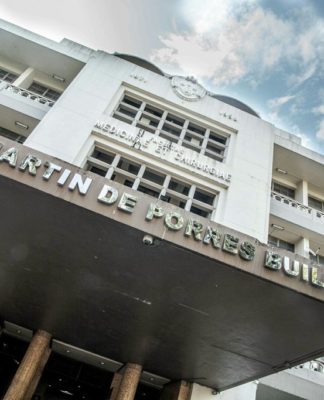THE UNIVERSITY may have found the missing link to its scientific research thrust through international research institutes with which it has built formal links.
With the rise of its many research centers, a strong indication of a growing awareness and interest of the Thomasian community in the sciences, UST widened its scientific research partnership with international and local universities.
International linkages pave the way for the professional competitive growth of Thomasian researchers, therefore increasing the prestige of the University as a research institution, UST officials said.
Dean Fortunato Sevilla III of the College of Science told the Varsitarian that the accreditation of Thomasian researchers in international institutes speaks of the credibility of the University.
“People outside the University recognize the capabilities of our research groups here. The mere fact that they allow us to collaborate with them means they recognize us as equal partners,” he said.
In an interview with the Varsitarian, Dr. Maribel Nonato, director of the Research Center for Natural Sciences (RCNS), categorized linkages into three major components: exchange of faculty members, exchange of students, and exchange of resources. Also called “exchange visits,” the first and second components involve doing graduate studies and dissertation research with international partner institutions. The third component includes shared resources, particularly in literature and research facilities.
The latest formal ties made by UST are with the Universitat Autonoma de Barcelona in Spain, the University of Illinois in the United States, and the University of Manchester Institute of Science in the United Kingdom.
Other linkages include the National University of Singapore; Chiba University and Nagoya City University School of Medicine in Japan; University of Western Australia, University of New South Wales, University of Queensland in Australia; and Hanover University and Universitat Dusseldorf in Germany. Most of these partnerships are focused on plant sciences, chemical sensors, organic synthesis, molecular biology, and biomedical and food technology.
So far, the most successful local research partnership is with the University of San Agustin in Iloilo, a number of whose Chemistry faculty finished graduate studies at the UST Graduate School.
Dr. Sevilla said of research linkages also mean improved publications, human resource development, and access to external funding.
Through these linkages, the University can raise the quality of research publications, Sevilla said. Dr. John Ramos of the College of Science, 2004 National Academy of Science and Technology award recipient, owes his research cues in molecular biology experimentation to the linkage projects, he added.
“Since more knowledge and technique are obtained from the linkages, it goes down to the improvement of teaching,” Sevilla said.
Through the linkages, the University also avails of external funding for its research. This year, RCNS is closely collaborating with local agencies like the Philippine Council for Advanced Science and Technology Research and Development and the Philippine Council on Health Research and Development for monetary support.
“We are happy now with the result of linkages, but this should not stop here. We are hoping that the University will recognize our effort, and will continue supporting us, “ Nonato said. “By keeping and sustaining collaborations, the project would not only be confined to the sciences. After more agreements, it can now spread to the other disciplines.”
















